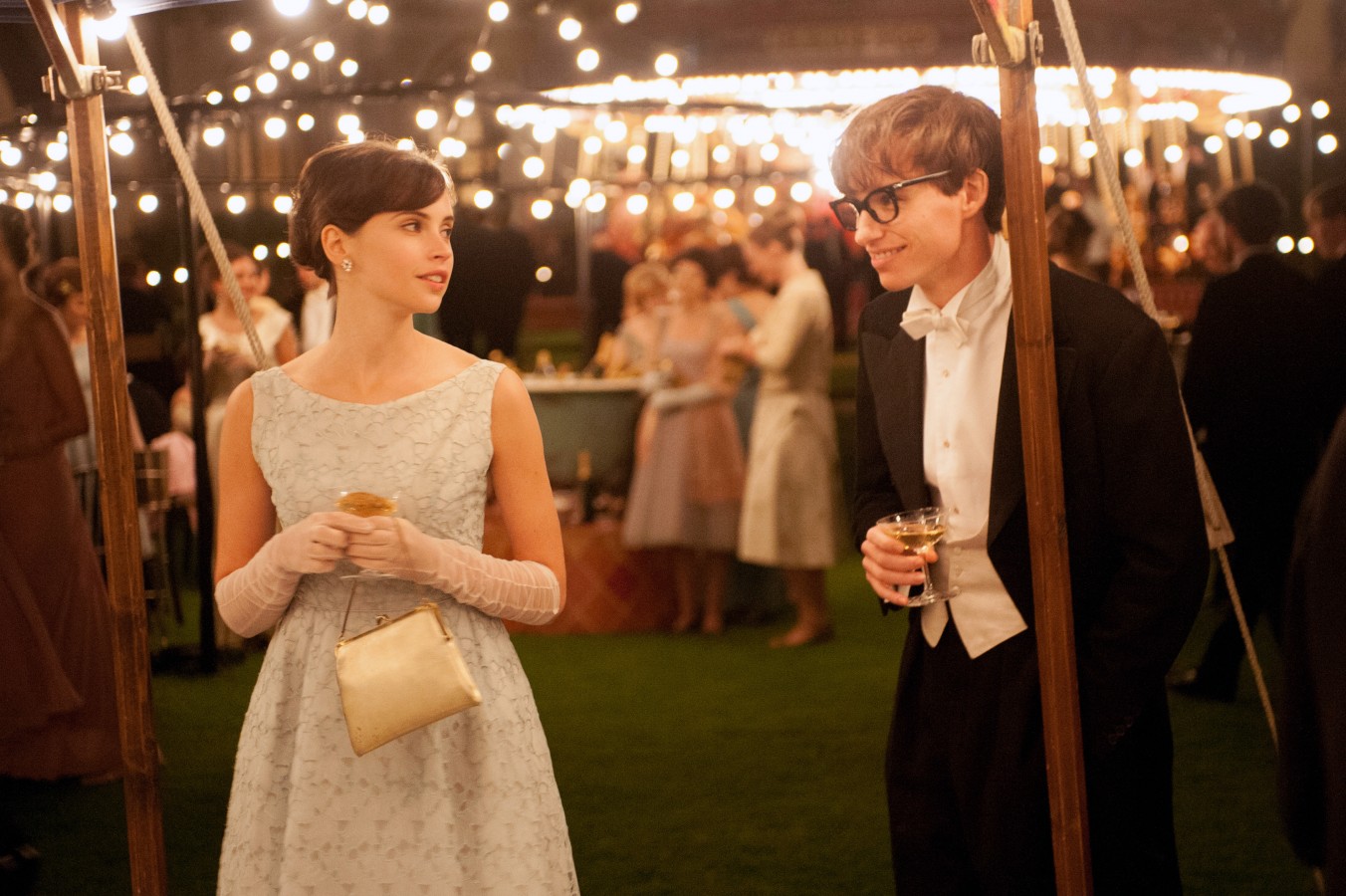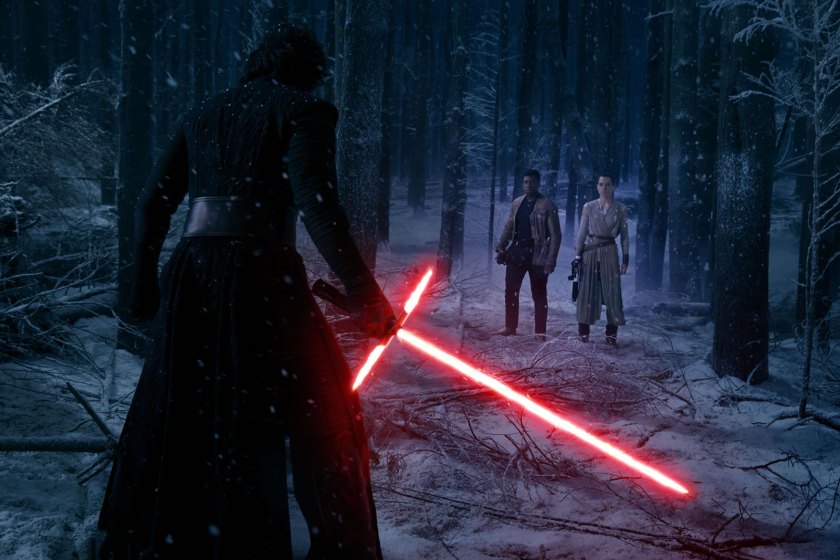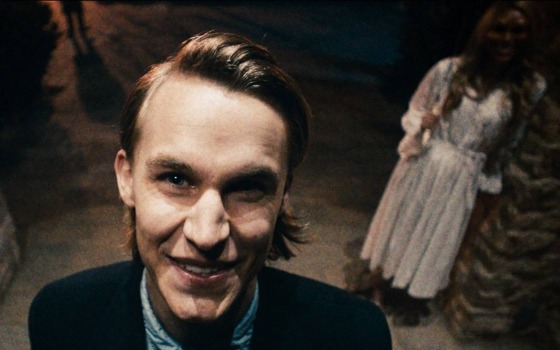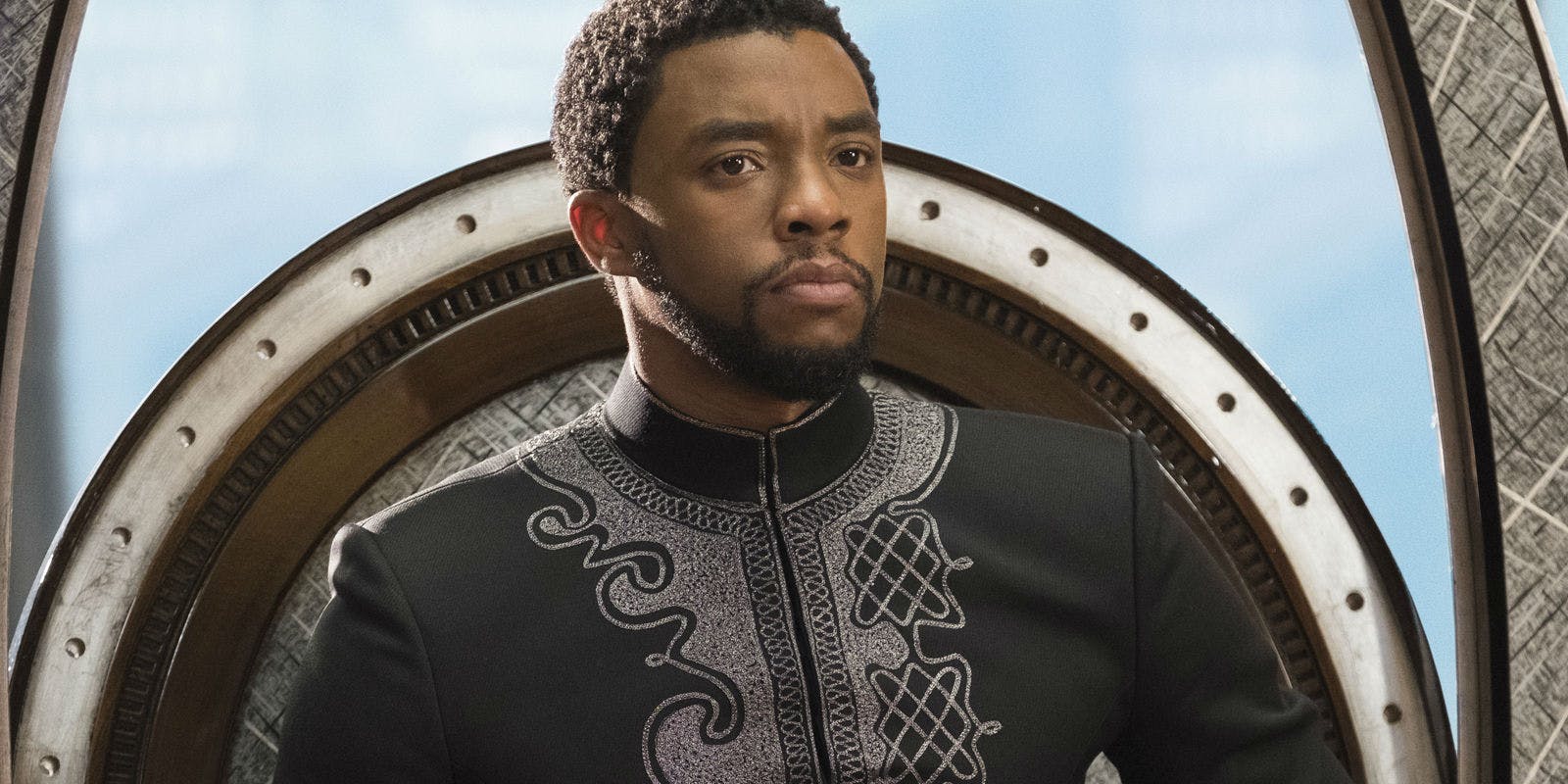5. The Theory of Everything

Known as the biography of famous astrophysicist Stephen Hawking, “The Theory of Everything” only touches on a part of his life, one that is too riddled with inaccurate historical facts. Based on the memoir of Jane Hawking, the divorced first wife of the scientist, this film tried to present Hawking as a sensitive and sensible human being despite some weird eccentricities of his own. “The Theory of Everything” doesn’t show Stephen Hawking’s scientific journeys, but is almost focused on his personal life; more specifically, his love life.
Considering that the subject of the film was the latter one, “The Theory of Everything” defied its source material and humiliates the writer Jane Hawking. Scientific genius aside, Stephen Hawking had a messy, fickle-minded, and sometimes monstrous contribution to the love life of Jane and him. All the things are downplayed in the film, several notches lower. It doesn’t even successfully introduce Hawking’s scientific achievements for the unsuspecting viewer.
The only good thing about “The Theory of Everything” is the performance of Eddie Redmayne as the scientist, which is often borderline caricature. Neither the personal nor the professional journey of Hawking is prominent here; the film almost depends upon the visibly inspiring yet sugar-coated dialogues and viewers’ empathy toward the wheelchair-ridden genius of Hawking to extract tears – but never gains it.
4. Star Wars: The Force Awakens

“Star Wars: The Force Awakens” was initially deemed as a worthy first entry in the new “Star Wars” sequel series created by J.J. Abrams. But afterward, when it is time to reassess a film after its closed run, “The Force Awakens” shows multiple weaknesses in it. “The Force Awakens” was marketed as a fond homage to the original Star Wars saga, but in actuality, it is a poor revamping of “A New Hope.”
The new leads of the sequel series are uninteresting; after watching the legendary David Prowse as Darth Vader on screen, it is difficult to consider Adam Driver as the new lead antagonist in the series with his painful exaggerated dramatics. While the Star Wars films have always been full of action and melodrama – hence the genre of “Space Opera” – the central storyline of the new film is badly sentimental and melodramatic and doesn’t touch an emotional chord because of its derivativeness. Maybe for the die-hard fans “The Force Awakens” is a gift package, but for new viewers, this unofficial reboot doesn’t add anything new to get excited about.
3. The Purge

“The Purge” had a distinct, dystopian concept in its favor, but it is a pity that it remains the sole thing that can be remembered about it, not the film that turned out to be. The film had a nerve-wracking message to deliver, but the final product had the feel of a glossy, run-of-the-mill horror film, not a fully-realized environment. An occasion that for a single day legalizes and worships the practice of murder and violence through the name of “Purge” calls for the days of brutality where survival of the fittest dominates. Only here the tools are more modern – families that have state-of-the-art security systems can survive the day.
“The Purge” focuses its plot on the survival game of a well-lived family on the occasion of Purge, but the larger context is missing in the film. Not only that, after some time, “The Purge” delves into a normal slasher film where the expected things happen to the aforementioned family. “The Purge” is largely remembered and praised for its rare idea, but the weak conceptualization of it cuts it short from a game-changing piece of cinema.
2. Bohemian Rhapsody

“Bohemian Rhapsody” was supposed be a film for the fans of the Queen and a film which would force the unawares to pay attention, if there is any. This film does a disservice to both of them. Greatly focused on the life and mannerisms of its foreman Freddie Mercury, the film missed to present the history of the band in a balanced and authentic fashion. “Bohemian Rhapsody” tried to sell the magnetism of Freddie Mercury by exploring and exploiting the details of his personal life, including the tales of his controversial sexual orientation. But the terminal disease plot comes fast in the film in a bad lesson of screenwriting.
Everyone knows the history of Queen and its story of misfits, so the film needed a good treatment to back up the film. “Bohemian Rhapsody” was hailed for the great performance of Rami Malek and the charm of watching Queen songs in a recreated environment and truly the film holds a medium ground for the performance of him, but it is not of the highest calibre. At best, “Bohemian Rhapsody” is a film that managed to cover the greatest Queen songs with an infectious energetic performance by Rami, not the history making film it is claimed to be.
1. Black Panther

The success of “Black Panther” happened more because of its strategic position in the history than the quality of the film. As a film, “Black Panther” is mediocre at best with weak atmospheric development and unsubtle commentary of oppression. This is a standard Marvel affair: full of uninspired computer-generated animation and action set pieces with scarce plot progression to drive and back them. Apart from the unsubtle message “Black Panther” provides, there is no intellectual entertainment in its offering. For its historical importance, “Black Panther” needs to be archived, but not for its quality.